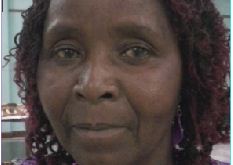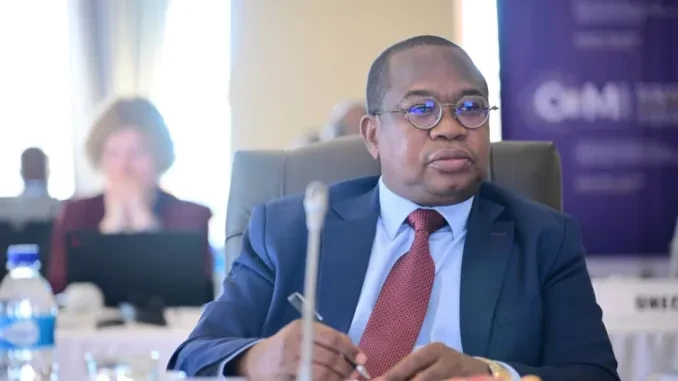
ZANU PF Seke Manyame Rural District Council Ward 5 councillor-elect Beneniah Tendai Ushewokunze said women should not fear venturing into politics and other positions of authority.
Ushewokunze said she only went up to Grade Seven at school, but this modest education did not deterred her from contesting the 2013 council elections where she competed with men who had gone up to high school and university levels.
NewsDay Senior Parliamentary Reporter Veneranda Langa last week caught up with Ushewokunze at a workshop to groom women for political posts which was being run by the Self Help Development Foundation and the Women in Politics Support Unit. The following are excerpts of the interview between Langa (ND) and Ushewokunze (BU) on her election as councillor.
ND: Who is Beneniah Ushewokunze and how did you get involved in council affairs and politics?
BU: I began participating in politics in 1980 and have not looked back ever since. I became interested in local authority affairs in 2006 when the people in Seke where I live suggested I should contest for a council post after noticing that I had worked hard in improving the lives of women by starting home-based care programmes and clubs for women and the youths in the area.
I won the mandate to represent Ward 5 in Manyame Rural District Council in 2006, and in 2008 I was elected for another term. I also managed to win the seat during the just-ended 2013 harmonised elections. I am a married woman with three children. On the education side I only managed to go up to Grade Seven.
ND: As a woman, who did not go to secondary school, did that deter you from contesting or even make you less confident of winning?
BU: People were not really looking for someone who is educated to represent them. They were looking for a councillor who has people at heart. They were looking for a humble personality who was touched by their plight and would fight for the improvement of facilities in Ward 5. Despite my low educational qualifications I managed to beat male candidates who had acquired high school and university level qualifications.
- Chamisa under fire over US$120K donation
- Mavhunga puts DeMbare into Chibuku quarterfinals
- Pension funds bet on Cabora Bassa oilfields
- Councils defy govt fire tender directive
Keep Reading
I was very active and was involved in self-help projects for people in the community. Even though I did not have a chance to complete my education, I encourage young girls to study hard. I am one person who thinks that even if one failed to complete school due to lack of funding, they can still do so later through enrolling at night schools. I actually did my education up to Grade Seven through night school.
ND: What kind of projects did you undertake since you were elected Manyame Rural District Councillor from 2006 to date?
BU: There are seven gardening projects that I started since most of the people in the area are very poor. I was targeting widows and orphans as well as the under-priviledged. I also managed to install electricity at Ushewokunze primary and secondary schools and built a crèche in the ward.
ND: How did you manage to overcome the fear that many females have to get into politics?
BU: Most women think they are unable to lead and they do not have confidence. Women are afraid to stand up in front of other people and sometimes culture deters them from doing so. Politics can be violent, but this time around I do not think that it was the issue of violence that deterred most women from participating, but it had to do with fear and lack of finances to spearhead campaigns.
ND: How did you then finance your campaigns?
BU: I had no money and so I did not use posters and other expensive forms to campaign for the council seat. I used door-to-door campaigns and at times, I approached the village headman to ask people to attend my rallies and they did and voted for me.
ND: Now that you have been elected to become councillor, what different things do you promise to do for the people who voted for you?
BU: We have serious transport problems and the roads in Seke are very bad. I have done my research and noticed that any transport company that brings transport to Seke will seek to make huge profits because there are many people in the area and they struggle to get transport.
One of the things I will do for my ward is to bring back Zupco buses. I heard they bought a new fleet of buses and I want them to provide transport services to people in the ward. We also need more boreholes to alleviate the water problems in the area. There is also the problem of ablution facilities. Many households do not have toilets and they end up using the bush or ask neighbours for permission to use their toilet facilities. If we can get cement and bricks, we can build more toilets for the people in the ward. ND: What kind of advice would you give to other women who want to venture into politics?
BU: Women should overcome fear. They should go to the grassroots and speak to people so that they get support. The most important thing when they become leaders is to show love to everyone — even to the poorest persons because you still need their votes. Women should also be organised and start campaigning well before elections. It does not help to start campaigning when election dates have already been announced. I am not an educated person, but I have been elected councillor for three consecutive times because I show love to people and help under-privileged women and youths.
ND: Do you have any other political ambitions?
BU: At the moment I just want to concentrate on helping the people in Ward 5 and complement the work of the MP for the area, Phineas Chihota, in spearheading developmental issues in the community.







